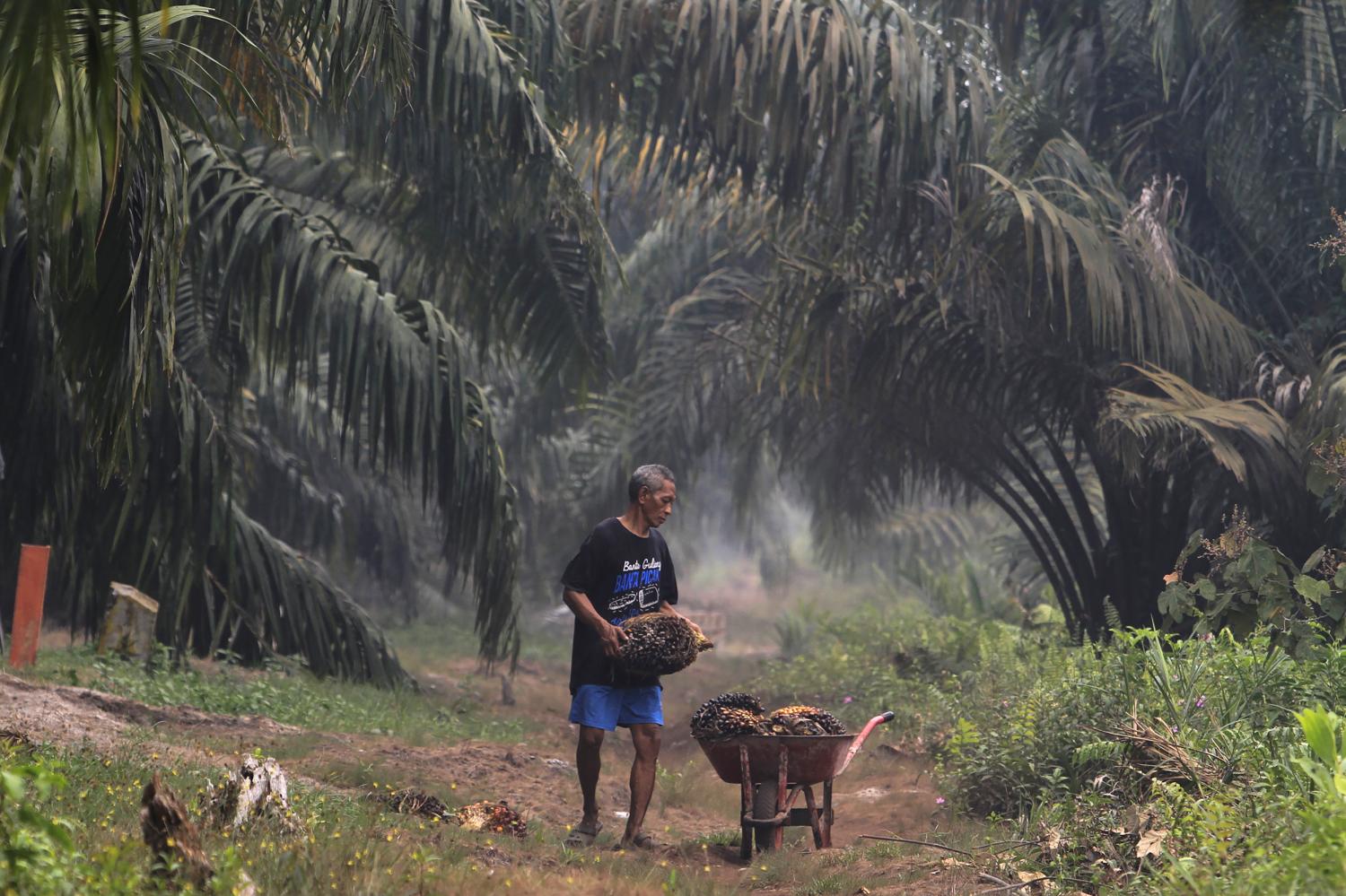
Indonesia is stepping up its economic diplomacy in 2020 as trade disputes with the European Union (EU) are poised to escalate. The two sides have traded complaints at the World Trade Organization (WTO) over Indonesia's two main commodities, palm oil and nickel ore, even as they continue talks for a free trade agreement.
Vincent Piket, the EU ambassador to Indonesia, insists that the WTO dispute settlement process and negotiations for the Indonesia-EU CEPA (Comprehensive Economic Partnership Agreement) are separate matters.
"It is key that both parties continue to adhere to WTO rules. In that way, we avoid a knock-on effect from one onto the other. Both sides have a strong interest in putting in place a mutually beneficial economic agreement for the long term," he said in an emailed statement to Asia Focus.
One focus of Indonesian economic diplomacy in 2020 will be to promote palm oil as a sustainable commodity by highlighting its compatibility with the United Nations' Sustainable Development Goals (SDGs), said Febrian A Ruddyard, director-general for multilateral cooperation at the Foreign Ministry.
"We want to highlight the palm oil industry as a tool to achieve the SDGs. This would help Indonesia's palm oil diplomacy," Mr Febrian told journalists on Dec 16.
The government is preparing a presentation on palm oil sustainability and will seek its endorsement from the UN Food and Agriculture Organization (FAO). The goal is to shift the narrative away from allegations that link production of the world's most widely used vegetable oil to massive deforestation.
Hari Prabowo, director for trade, commodities and intellectual property at the Foreign Ministry, believes the world is ready to hear about the positive side of palm oil. He said Indonesia would show that its crude palm oil is sustainable as it is acknowledged by the Roundtable on Sustainable Palm Oil (RSPO) certification system, and is in keeping with the SDGs. Those include poverty reduction, empowering people and eliminating inequality. Smallholders manage an estimated 40% of oil palm plantations in the country.
Mr Hari said the country would promote the certification system and its acceptance in the international community. Significantly, he pointed out, palm oil is only plant-based oil that has a sustainability certification system; others such as corn oil, soybean oil and sunflower oil do not.
"If the international community is really committed to push for the SDGs and a green agenda, they would see this concept as acceptable, and we could compare crude palm oil fairly with other plant-based oils," he told Asia Focus.
"We will promote [the view that] all vegetable oils should have a certification standard like this."
The Trade Ministry's trade defence director, Pradnyawati, acknowledged that palm oil faces numerous challenges in the export market. These include changes in consumer preferences arising from concerns about health, the environment, food safety, labour or sustainability certification concerns.
"The classic problem that Indonesia's palm oil industry continues to face is distorted facts -- the claim that oil palm plantations are the biggest contributor to deforestation, when livestock farming is the biggest land encroacher in the global farming, agriculture and forestry sectors," she said.
Oil palm plantations, she said, occupy only about 0.3% out of the total farmland in the world, whereas livestock farming uses 71.3%.
Indonesia, the world's top palm oil producer, filed a lawsuit against the EU at the WTO on Dec 9 against its renewable energy directive II, which would eliminate the use of palm oil-based biofuel by 2030. The EU says Indonesian biofuel is not produced sustainably, while Indonesia says the policy discriminates against its biodiesel exports.
The EU earlier this month announced import tariffs ranging from 8-18% on Indonesian palm oil-based biofuel for the next five years. They are intended to counter what the EU claims are unfair government subsidies to biofuel producers.
"These companies benefit from subsidisation, which makes their biodiesel unfairly competitive in the EU market and that impacts other biodiesel producers elsewhere and also those in Europe, so it's a very, very targeted duty. It is not a blanket duty," Mr Piket said earlier this month.
"Our market is and will remain open for Indonesian palm oil; there is no ban, contrary to what is sometimes claimed. The trade statistics prove it."
The EU has also taken Indonesia before the WTO dispute settlement body to challenge a ban on nickel ore exports, which will take effect in January. The EU says the restrictions "unfairly limit access of EU producers to raw materials for steel production, notably nickel".
"Stopping exports of nickel materials hurts us very directly," said Mr Piket. "Indonesia is a world power when it comes to nickel, as the biggest producer in the world. The industry in Europe needs your nickel."
As well, the EU is challenging Indonesian subsidies that encourage the use of local content and give preference to domestic over imported goods, which goes against WTO rules.
According to data from the trade ministry, Indonesia is currently facing seven cases of anti-subsidy allegations from the United States, the EU and India. If countervailing duties are imposed, Indonesia could potentially lose at least US$1.25 billion in export value per year.
President Joko Widodo has defended the nickel ore export ban as part of an effort to control the country's current account deficit.
"These are our goods, our nickel. Whether we want to export it or not, it would be as we please," he said last Monday.